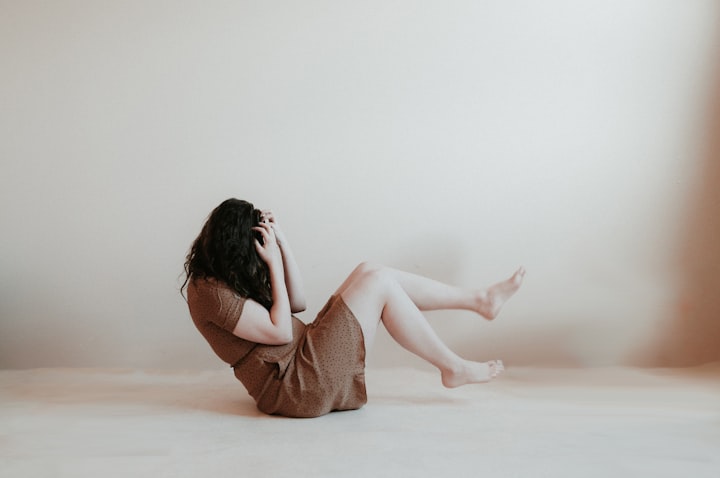Living with Anxiety
What is anxiety and how to cope with it

Living with anxiety is something I have been living with for the last few years. It is something that I do not talk about very much, as I do not like to admit that I am living with it, especially to myself. My anxiety has gotten worse over the last year, as I have been dealing with a couple of major family situations that have yet to be resolved. Not only has my anxiety worsened, I feel like it has developed into a bit of depression as well, if that is possible. I do not fully understand my anxiety yet, and I am reluctant to seek help yet.
The question is why do most people find it hard to admit to themselves that they have anxiety or depression? And why is it harder to seek help from others? These are two of the questions that I have been struggling with everyday for awhile now. This leads to research and understanding what I am going through.
Researching my anxiety does seem to help me understand my own anxiety better to help me make the decision to seek treatment or help. There are plenty of books and websites about both those subjects to go to and read about to be able to understand what someone is going through.
Anxiety is considered to be a normal reaction to stress, and it is different from regular nervousness or anxiousness. It also involves excessive fear or anxiety. Anxiety disorders is considered to be the most common of mental disorders and it may affect up to nearly 30% of adults at some point in their lives. But anxiety disorders are treatable. A number of effective treatments are available today. Some type of treatment helps those with anxiety lead a normal life if they choose to seek treatment.
Anxiety disorders can cause people to try to avoid situations that trigger or worsen their symptoms. For example, job performance, school, work, and personal relationships can be affected if someone is diagnosed. If someone is diagnosed with anxiety from a professional, the fear or anxiety of the person must be out of proportion to the situation or age-inappropriate and hinder ability to function normally.
What I find interesting is that there are several different types of anxiety disorders. Some of the different types include generalized anxiety disorder, panic disorder, specific phobias, agoraphobia, social anxiety disorder, and separation anxiety disorder. Each disorder is unique for their own reasons.
I feel like I relate most to generalized anxiety disorder. This particular disorder involves persistent and excessive worry that interferes with your usual daily activities. This ongoing worry and tension can be accompanied by physical symptoms, such as restlessness, feeling on edge or easily fatigued, difficulty concentrating, muscle tension or problems sleeping. Often all your worries focus on everyday things such as job responsibilities, family health, or other matters such as chores, car repairs, or appointments.
I have a constant worry over a lot of things, and it sometimes is frustrating on how much I worry about anything and everything . I believe my anxiety has gotten worse over the last couple of years.
I feel like I also relate to social anxiety disorder to an extent as well. Someone with social anxiety disorder has significant anxiety and discomfort about being embarrassed, humiliated, rejected or looked down on in social interactions. People with this particular disorder will try to avoid the situation they are in or endure it with great anxiety. Examples of social anxiety are extreme fear of public speaking, meeting new people or eating/drinking in public.
I personally do not like social interactions all that much or meeting new people. I am extremely introverted and would rather keep to myself than meet new people. I love to read in my spare time, and would rather keep my nose in a good book than talk to people.
Luckily, there are treatments for anxiety today that include psychotherapy or "talk therapy," and medications. Both of these treatments can be given alone or in combination. Cognitive behavior therapy (CBT), a type of talk therapy, can help a person learn a different way of thinking, reacting and behaving to help feel less anxious. Although medications will not cure anxiety disorders, they can provide significant relief from symptoms if someone is feeling too anxious. The most commonly used medications are anti-anxiety medications (generally prescribed only for a short period of time) and antidepressants. Stress techniques can help stress management as well.
I am hoping to someday overcome my anxiety. Researching anxiety has given me some comfort. Until I learn to overcome my anxiety (if that is possible), I have to learn to live with it.






Comments (1)
I just wanted to say that I admire your taste in literature, and I value your opinion as a reader. Would you be interested in swapping stories and giving each other feedback